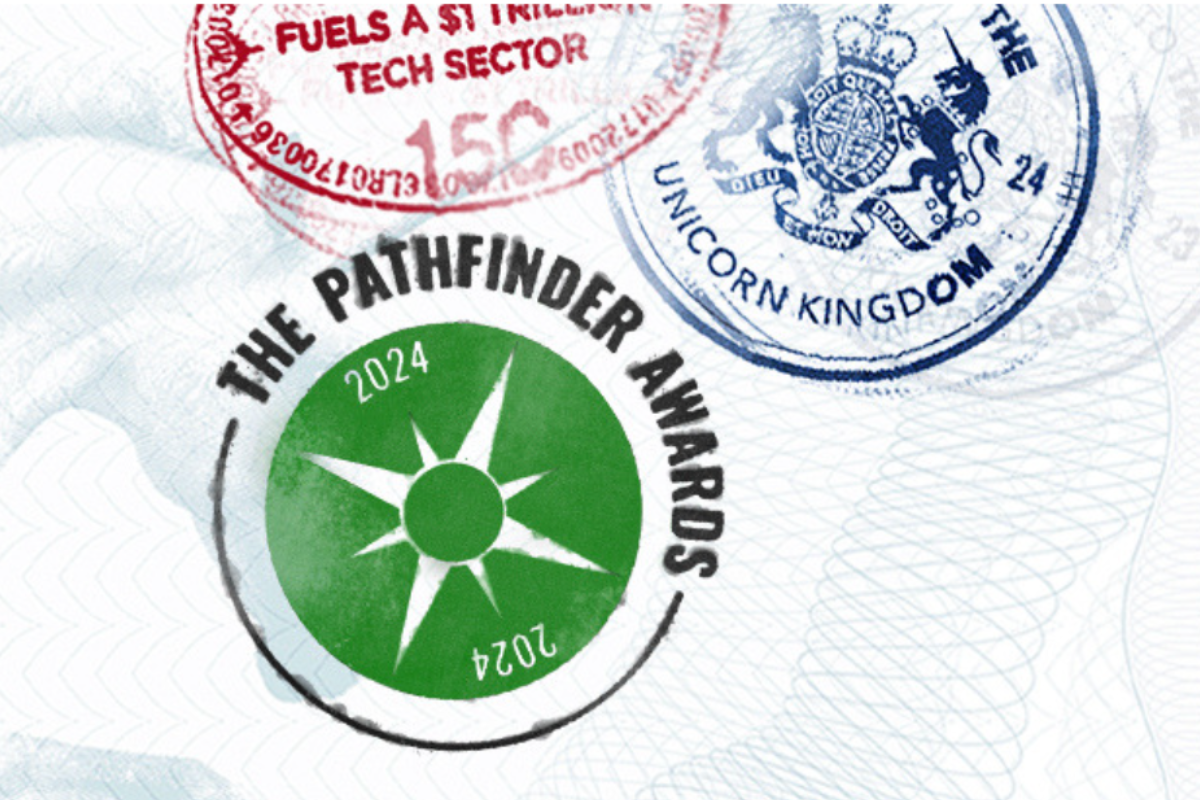


In 2023, the UK’s technology ecosystem reached an impressive milestone. It became the third country, after the US and China, to cross a total valuation of $1T.
In terms of number of billion dollar companies, the UK outstrips the rest of Europe combined. But it’s not just the growing community of homegrown tech unicorns that’s impressive. Over the past few decades, the UK has transformed into a science and technology superpower with one of the most impressive startup ecosystems in the world, and has been able to attract the best entrepreneurial talent from around the world. Nearly 2 in every 5 of the UK’s fastest growing tech companies have at least one non-UK founder, while a quarter of global talent visa recipients are founders.
The Unicorn Kingdom: Pathfinder Awards (UKPA) is the latest initiative to identify the most exciting technology scaleups from overseas and bring them to the UK for support, investment, and introductions to a valuable network of innovators.
International tech companies—here’s what you need to know:
The UKPAs offer scaleups the enviable opportunity to tap into a rich tech landscape with a vast funding ecosystem and community of top quality talent.
There are three key criteria that businesses must meet in order to apply for the UKPAs. These are:
For winners, DBT is running a tailor-made programme based in the UK, designed to provide access to numerous resources and connections that can help establish a business in the UK. This includes everything from hands-on support from the DBT Global Entrepreneur Programme (essentially a UK government-run Accelerator), introductions to industry experts in the public and private sectors, and invitations to exclusive VIP events.
“There is no better place for ambitious tech companies to grow than in the UK’s vibrant and growing $1T tech ecosystem,” explains Chris Barton, His Majesty’s Trade Commissioner for Europe.
“These awards offer a fully-tailored direct route to the financiers, incubators, tech-savvy customers, and infrastructure needed to help them make that next great leap from ambitious scale-up to just maybe becoming another of the UK’s 140+ unicorns.”
In recent years, the UK has doubled down on certain sectors at the forefront of scientific and technological innovation, with the goal of becoming a leading light internationally in certain fields.
The UKPAs have outlined four key categories for scaleups they want to attract—AI, Cyber Security, Connected and Automated Mobility (CAM) Technology, and Digital Trade Solutions.
Artificial intelligence is one such sector where the UK has moved quickly to establish itself as a thought leader. It’s believed that 1.3M businesses in the UK will be using some form of the technology by 2040, with an expected £200B annual expenditure on developing AI by that point. Last year, the UK hosted the AI Safety Summit at Bletchley Park, the first global summit of its kind bringing together politicians, tech leaders, and scientists to address the possibilities and risks surrounding the technology. This outlined the strong community that the UK is already convening, from software developer Stability AI (behind Stable Diffusion) to semiconductor manufacturer Graphcore.
Cyber security is another industry where the UK is leading the way around innovation, with almost 300 international cyber security businesses already located there—not to mention homegrown leaders like Darktrace and Sophos. This has been fuelled by the UK government’s Cyber Security Strategy launched in 2022, outlining opportunities for public and private innovation in the sector.
As part of a transition towards net zero, the UK government is interested in investing in projects that can help upgrade its infrastructure, particularly around CAM technology. Creating smart and sustainable mobility ranks highly, and there is a clear interest to back businesses that are pushing innovation here.
Finally, digital trade solutions. The UK has always occupied a central role in global trade—one of the virtues of being an island nation and having to build strong trade partnerships. The UK has shown interest in looking ahead to the future of trade, in particular around digital customs, digital identities, electronic trade documents, and electronic invoicing.
If you consider yourself in the same league as these businesses, and you’re eligible, you can apply here.